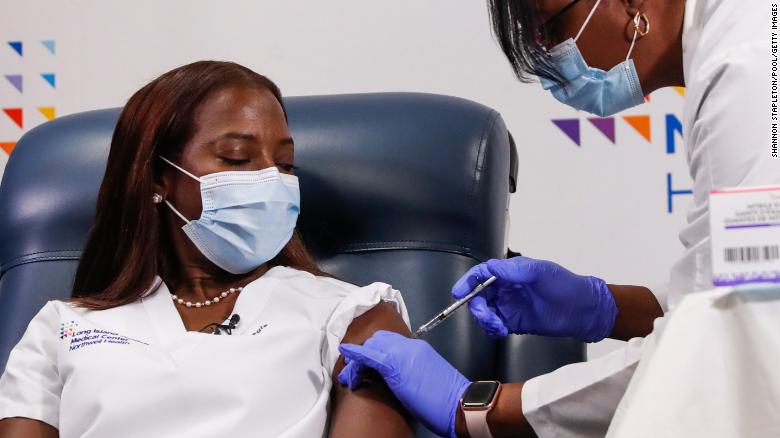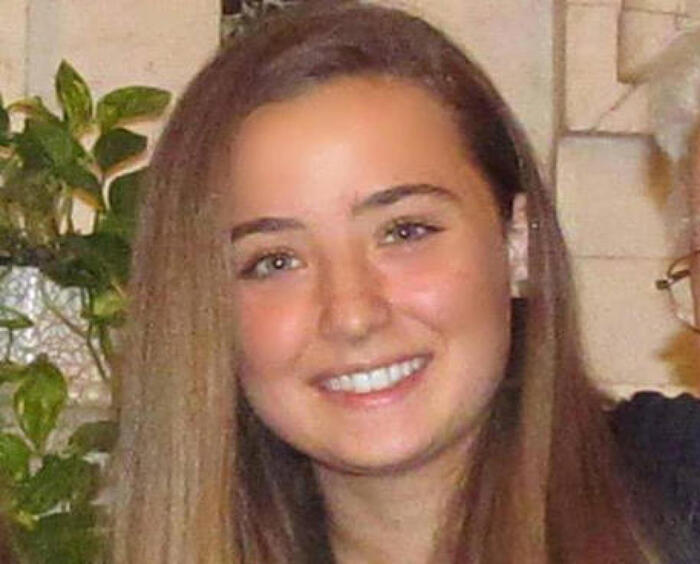Dr. Gupta receives the second dose of the 1:39 vaccine
(CNN) ––
On December 18, an emergency nurse in San Diego was vaccinated against covid-19.
And a week later, he tested positive for coronavirus, CNN affiliate KGTV reported.
Stories like this will become increasingly common as millions of Americans receive the Pfizer / BioNTech and Moderna vaccines in the coming months.
Over time, many of the vaccinated people will become infected with COVID-19.
During clinical trials, vaccines were shown to be 95% effective.
Which means that some of those vaccinated were also infected.
Here we explain how and why.
Questions from the audience on covid-19: Can you get coronavirus again with the new mutation in the UK?
Covid-19 vaccine immunity does not kick in right away
It takes time for vaccines to develop immunity.
And the two against the coronavirus that have been authorized so far require two doses.
Which must be administered several weeks apart, to train the body's immune system.
People can be exposed to COVID-19 just before getting vaccinated, or right after.
Situations in which the body does not have time to develop its defenses.
advertising
The Centers for Disease Control and Prevention (CDC) say that building immunity "usually takes a few weeks."
MIRA: This is how Dr. Huerta did with the vaccine against covid-19
“That means it is possible for a person to get the virus that causes COVID-19 just before or just after vaccination.
And still get sick, "the CDC stated.
The 95% efficacy rate of COVID-19 vaccines also assumes some built-in waiting time.
Moderna measured the effectiveness of its vaccine 14 days after the second dose, while Pfizer measured it seven days after the second dose.
Vaccines may not provide perfect protection
Nurse Sandra Lindsay received the second dose of the Pfizer / BioNTech vaccine this Monday in New York City.
She won't be immune right away.
No vaccine is 100% effective.
Furthermore, coronavirus vaccine manufacturers are still evaluating whether their products protect against all infections or only those that cause symptoms.
The CDC estimates that 40% of COVID-19 infections cause no symptoms.
Additionally, the Moderna and Pfizer / BioNTech clinical trials only evaluated whether the vaccines prevented symptomatic infections.
Do new strains make the covid-19 vaccine ineffective?
0:52
Moderna said in December that it submitted data to the US Food and Drug Administration (FDA) showing that its vaccine prevented 2/3 of all infections, including asymptomatic ones.
For now, the CDC recommends that people do not assume they are completely immune to infection after getting vaccinated.
Overall, both vaccines provided approximately 95% protection in clinical trials.
So a small number of people could still catch it after two doses.
In wider use, this efficacy rate may decrease.
Precisely, as people with different levels of immune system response are vaccinated and then go out into the world.
It is not that the vaccine gives you covid-19
Current covid-19 vaccines cannot infect anyone with the virus.
They do not contain it.
Instead, they carry a small stretch of genetic material known as messenger RNA, or mRNA.
It instructs the body's cells to make a small piece of material that looks like part of the virus.
That piece, in turn, is recognized by the immune system as a foreign invader.
Therefore, antibodies and immune cells begin to be produced that can recognize and neutralize the virus if the vaccinated person becomes infected.
LOOK: Why a vaccine against covid-19 does not mean that you can stop using a mask
“None of the licensed and recommended COVID-19 vaccines, nor those currently under development in the United States, contain the live virus that causes COVID-19.
This means that a COVID-19 vaccine cannot make you sick, "the CDC noted.
Covid-19 Vaccine Immunity May Decline Over Time
No one knows how long current vaccines will protect people from infection.
The new coronavirus has only been around for about a year.
And the final phases of vaccine trials were only concluded a few weeks ago.
Pfizer and Moderna followed the volunteers for at least two months after their second dose.
The protection provided by vaccines can wear off over time, and some require a booster shot years later.
For example, the CDC recommends that adults receive a tetanus booster shot every 10 years.
During outbreaks of measles or mumps, the CDC indicates that some people "may be advised" to receive an additional dose of MMR vaccine for added protection.
LEE: The FDA says both doses of coronavirus vaccines are necessary for it to take effect
There is also the possibility that the new coronavirus will mutate in a way that makes vaccines less effective.
Strains of the influenza virus are constantly mutating.
And that's one of the reasons people need new flu shots every year.
Now, doctors hope that the coronavirus does not mutate like the flu does.
However, if that happens, the technology used to make the new covid-19 vaccines was designed to be easily adapted.
Updating the Moderna and Pfizer vaccines should take much less time than creating new flu vaccines.
Others may not be safe from you
Health officials, from Dr. Anthony Fauci onward, are warning people that no one can stop wearing face masks or ignore social distancing just because they received the vaccine.
This is because even people who are immune to the virus can be exposed and pass it on to other people.
Covid-19 grows in the nose, said Fauci, director of the National Institute of Allergy and Infectious Diseases.
"Someone may be vaccinated, but still be an asymptomatic carrier," warned Dr. Leana Wen, CNN medical analyst and emergency physician.
'They may not show symptoms, but they have the virus in their nasal passage.
So if they talk, breathe, sneeze, etc., they can still pass it on to other people, "he said.
Because of these unanswered questions, the CDC notes that vaccinated people should still use "all available tools" to stop the pandemic.
Among them, the use of a mask and keep at least 2 meters away from others.
Elizabeth Cohen and Faye Chiu, both of CNN, contributed to this report.
Covid-19 Pandemic Coronavirus Vaccine










/cloudfront-eu-central-1.images.arcpublishing.com/prisa/KMEYMJKESBAZBE4MRBAM4TGHIQ.jpg)



